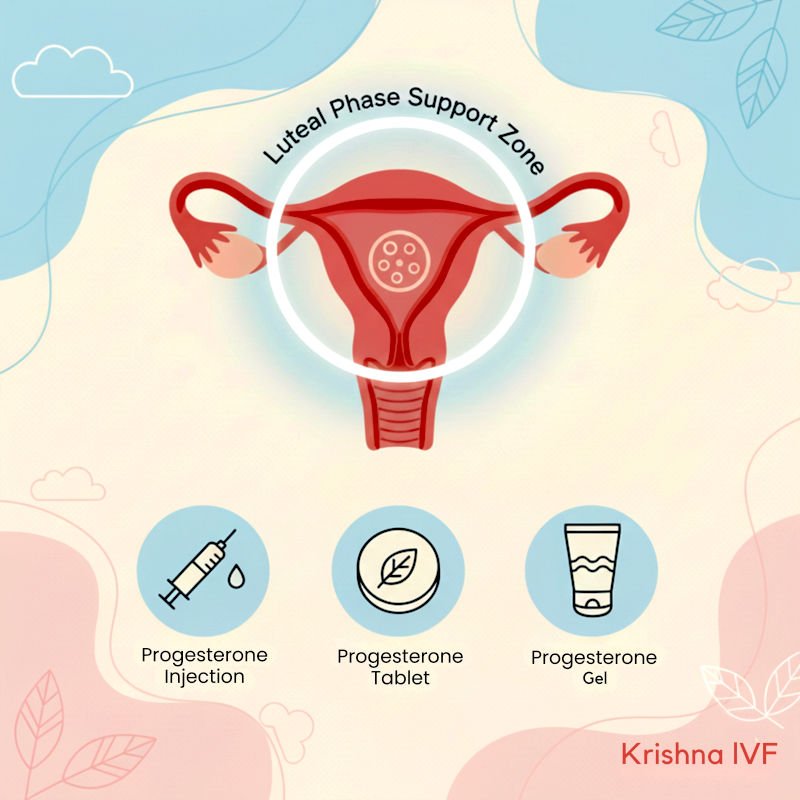Luteal Phase Support After Embryo Transfer: The Key to Improved IVF Implantation Success
Many IVF patients describe the days following their embryo transfer as the most emotionally charged phase of their fertility journey. After weeks of injections, scans, stimulations, and procedures, the physical aspect of treatment suddenly gives way to anticipation and hope. Yet beneath this pause lies a critical, often unseen process, the luteal phase where the uterus prepares to welcome an embryo. For patients, this period can feel filled with questions: Am I doing enough? Are my hormones strong enough to support implantation? What if something happens before the pregnancy test?
The truth is that these worries are completely valid. The success of an embryo transfer does not depend solely on embryo quality; it also requires a receptive uterine environment, balanced hormones, and consistent support after the procedure.

This is where luteal phase support (LPS) comes into play, a targeted approach to ensure your body maintains the right hormonal foundation for implantation to occur smoothly.
In IVF cycles, ovarian stimulation can interfere with the body’s natural hormone production, particularly progesterone. Without sufficient progesterone, the endometrial lining may thin or shed prematurely, reducing implantation chances. Clinically, this phase is managed through carefully calibrated progesterone supplementation, given as injections, vaginal gels, or tablets to recreate the natural environment of early pregnancy. For patients, understanding why these hormones are necessary can ease anxiety and foster confidence in their treatment plan.
Many individuals also wonder why luteal support continues for several weeks after transfer. During this time, the placenta has not yet started producing enough hormones to sustain the pregnancy on its own. Continued supplementation bridges this gap, ensuring the embryo has every chance to implant and thrive.
At Krishna IVF Clinic, the aim is to demystify each step of the process so patients can move from uncertainty to reassurance. Luteal phase support is not simply another medication routine; it is your body’s safety net during the most delicate stage of treatment. By understanding its importance and staying consistent with your prescribed plan, you take an active role in strengthening your path to a successful pregnancy.
This blog explores what happens in the luteal phase, why progesterone matters, and how personalized luteal support protocols at Krishna IVF can help optimize implantation outcomes; turning hope into healthy beginnings.
